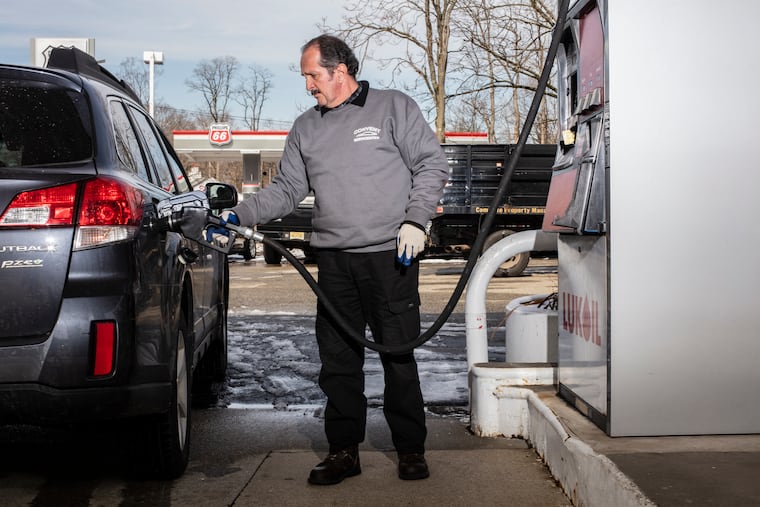New Jersey can cut gas prices by letting drivers pump their own
Garden State drivers should not be deprived of the choice every other American driver gets to make when they fill the tank.

Gas prices are at all-time highs. While most states are enacting gas tax holidays and other short-term fixes, New Jersey has a golden opportunity: It can cut prices by allowing consumers to pump their own gas.
Having an attendant pump one’s gas has been a cherished New Jersey tradition since the 1940s. While it may be pleasant to have someone else do the dirty work, it also costs more. In the face of economic pressures, something has to give. Yet politicians still ignore or deny the obvious fact that gasoline prices could be lower with self-service sales. Senate President Nicholas Scutari, for example, claims that “there is no data supporting any contention that moving to a self-service model would save residents money at the pump.”
That is false. A new study by one of the authors of this op-ed finds that allowing self-service would indeed generate significant savings for beleaguered drivers.
Beginning in 2018, gas stations in some Oregon counties — the only other state with a ban — were allowed to offer self-service gas. Prices fell by about 5 cents per gallon. New Jersey’s high labor costs would translate into even greater savings of up to 8 cents per gallon. That adds up to about $50 per year for the average driver — enough, depending on what you drive, for an extra tank or so.
The reason for the savings is simple: Just as shoppers pay more for groceries delivered to their door, drivers pay more for gas delivered straight to their tanks. Thousands of New Jersey attendants earn under $15 per hour on average. Station owners might sign their attendants’ checks, but it is the drivers who pay the wages.
Proponents of the paternalist ban on self-service routinely cite survey results claiming to show that New Jersey drivers are somehow different from everyone else. A recent Rutgers-Eagleton poll, for example, found that 73% of New Jerseyans prefer having someone else pump their gas. “The people of New Jersey are very clear in wanting to keep the system we have now,” claims Scutari. Jersey girls don’t pump their own gas, as the saying goes.
But the survey questions are misleading because they don’t allow respondents to take price differences into account. Many likely assume that prices for full-service and self-service are equal. If that were true, practically everyone would prefer full-service. Similarly, most hotel guests would prefer valet parking to self-parking if the former, with the convenience it affords, was offered at no extra cost. Of course, hotels charge more for valet parking because the service costs them, and they have to recoup the expense. That’s the scenario we have in New Jersey right now: everyone pays more for gas because of the extra service.
Additionally, arguments to keep the ban in place have long been made out of thin air. Some argue that the New Jersey way is somehow safer. But judging from the fact that 48 other states’ drivers have been self-pumping without issues for decades, the public safety case is a hard one to make.
» READ MORE: Should New Jersey drivers be able to pump their own gas? | Pro/Con
Then, there are those crying wolf about job losses. But with record-low unemployment and lots of businesses having trouble filling open jobs, this may be the perfect time to make the switch.
What’s more, eliminating the ban doesn’t mean service stations can’t still offer attendant pumping. It just means more options for drivers, like hotel guests with valet and self-parking.
Inflation is out of control, and people are having trouble making ends meet, so it’s time for lawmakers to quit making excuses. Garden State drivers should not be deprived of the choice every other American driver gets to make when they fill the tank. And they shouldn’t be deprived of the savings, either.
Vitor Melo is a postdoctoral fellow with the Mercatus Center at George Mason University and a doctoral candidate in economics at Clemson University. Reed Watson is the director of the Hayek Center at Clemson University.